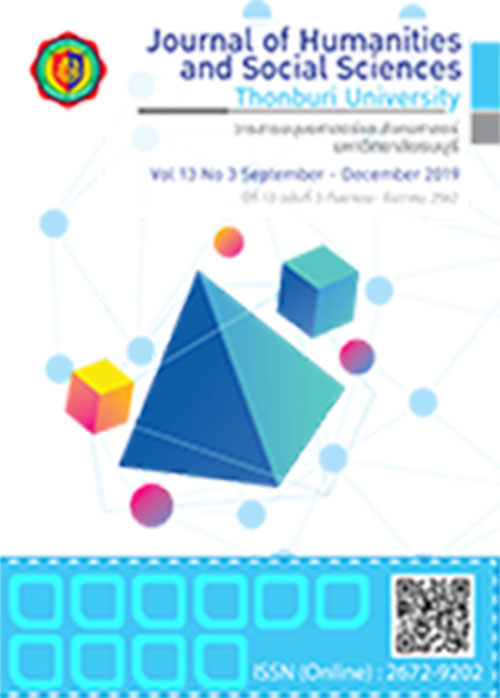CREATIVITY OF THE MODERN ACCOUNTION INFORMATION SYSTEM AND BUSINESS GOAL ACHIEVEMENT: AN EMPIRICAL EVIDENCE FROM AUTO PARTS SMALL AND MEDIUM ENTERPRISE IN THAILAND
Main Article Content
Abstract
This study attempts to investigate the determinants on creativity of the modern accounting information system and business goal achievement through mediating effect of decision-making effectiveness, accounting knowledge advantage and information quality support. Technology acceptance is a moderating variable on the relationship among creativity of the modern accounting information system and consequence variables. Questionnaire is used as an instrument for data collection. Here, 279 the head of the accounting department or accounting executive of each auto parts SMEs businesses in Thailand were selected as key informant. The Ordinary Least Squares (OLS) regression analysis is employed to examine all hypotheses. The results indicate that some dimensions of creativity of the modern accounting information system, namely accounting transaction collaboration, accounting compatible information linkage and accounting information integration capability has a partial significant positive effect on decision making effectiveness, accounting knowledge advantage and information quality support. Moreover, accounting knowledge advantage have significant positive effect on decision making effectiveness and information quality support. Likewise, the moderating shows some partial support for hypotheses derived from the conceptual model. Finally, Managerial contributions lead to enhance the more effectively of firms’ performance. Conclusion, suggestions and directions of the future research are highlighted.
Article Details
References
Auh, S. and B. Mengue. (2005). Balancing exploration and exploitation: The moderating role of competitive intensity. Journal of Business Research. 58(12): 1652-1661.
Blouin, M. C. (2012). Does other information improve the usefulness of management earning forecasts for analysis? Review of Accounting and Finance. 1(2): 93-112.
Bortiz,J. E. (2005). IS practitioners’ views on core concepts of information integration. International Journal of Accounting Information System. 6(4): 260-279.
Hair, J. F., Black, W. C., Babin, B. J.,& Anderson, R. E. (2010). Multivariate Data Analysis: A Global Perspective. 7thed. Upper Saddle River, NJ: Prentice Hall.
Harash E., Al-Timimi S.,and Radhi A. H. (2014). The influence of accounting information systems (AIS) on performance of Small and Medium Enterprises (SMEs) in Iraq. Journal of Business & Management. 3(4): 48-57.
Inluang Fawikorn (2018). Modern human capital management in operational level of generation Y : A case study at Northern region industrial estate Lamphun. Journal of Thonburi University. 12(Special Issue): 43-55.
Ismail, N. A. and M. King. (2005). Firm performance and AIS alignment in Malaysian SMEs. International Journal of Accounting Information System. 6(2005): 241-259.
Marriot, N. and Marriot, P. (2000). Professional accountants and the development of a management accounting service for the small firm: barriers and possibilities. Management Accounting Research. 11(4): 475-479.
Mitchell, V. L. (2006). Knowledge Integration and Information Technology Project Performance. MIS Quarterly. 30(4): 919-939.
Rodriguez, C S. and Lorente, A. R. M. (2011). Effect of IT and quality management on performance. Industrial Management & Data Systems. 111(6): 830-848.
Van De Ven A.H., Drazin, R. (1985) The concept of fit in contingency theory. Resources Organizational Behavior. 7: 65-333.
Wangcharoendate, S. (2016). Audit Professional Proficiency and Audit Stability: An Empirical Research of Certified Public Accountants (CPAs) in Thailand. University of the Thai Chamber of Commerce Journal. 36(3): 126-150.
Zarraga, R. M., and Alvarez, M.J. (2016). Efficient information related practices in companies committed to EFQM. TQM Journal. 28(6): 798-813.

